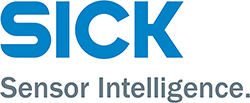Technical documents
Specifications
Brand
SickSensor Style
Block
Detection Type
Diffuse
Detection Range
50 → 600 mm
Output Type
PNP
Electrical Connection
M12 4 Pin Connector
Maximum dc Voltage
30V
Light Source
LED
IP Rating
IP67
Maximum Current
100 mA
Response Time
<700 μs
Maximum Operating Temperature
+60°C
Minimum Operating Temperature
-40°C
Series
W18-3
Housing Material
ABS
Mounting Type
Panel Mount
Country of Origin
Germany
Product details
W18-3 Series Photoelectric Sensors
SICK's W18-3 photoelectric sensor series reliably detects objects under difficult application conditions. The W18-3 photoelectric sensors offer many advantages over conventional optical sensors due to superior OES technology. A wide range of sensor variants provides increased user flexibility, including proximity sensors with high-precision background suppression, retroreflective sensors with autocollimation and through-beam sensors with high operating reserves.
These photoelectric sensors are immune to ambient light, background reflections and light absorbing objects, making them a reliable sensor solution. The W18-3 series can also be customized according to the customer’s requirements in critical applications. Adjustment controls and LED indicators located on the rear panel allows the operator to quickly and easily set the minimum and maximum distances. In addition, the IO-Link function offers full process control, from commissioning to service.
Features and Benefits
·Best-in-class optical performance due to superior OES technology
·Slim, durable IP67 rated plastic housing
·Flexible sensor settings, monitoring, advanced diagnostics, and visualization
·Reliable object detection due to best-in-class background suppression and resistance to ambient light
·A wide range of product variants provides increased user flexibility
·Less downtime in industrial environments
·IO-Link provides easy data access from the PLC
·Quick and easy configuration
·Easy device replacement and identification

P.O.A.
1
P.O.A.
Stock information temporarily unavailable.
1
Stock information temporarily unavailable.
| quantity | Unit price |
|---|---|
| 1 - 5 | P.O.A. |
| 6+ | P.O.A. |

Technical documents
Specifications
Brand
SickSensor Style
Block
Detection Type
Diffuse
Detection Range
50 → 600 mm
Output Type
PNP
Electrical Connection
M12 4 Pin Connector
Maximum dc Voltage
30V
Light Source
LED
IP Rating
IP67
Maximum Current
100 mA
Response Time
<700 μs
Maximum Operating Temperature
+60°C
Minimum Operating Temperature
-40°C
Series
W18-3
Housing Material
ABS
Mounting Type
Panel Mount
Country of Origin
Germany
Product details
W18-3 Series Photoelectric Sensors
SICK's W18-3 photoelectric sensor series reliably detects objects under difficult application conditions. The W18-3 photoelectric sensors offer many advantages over conventional optical sensors due to superior OES technology. A wide range of sensor variants provides increased user flexibility, including proximity sensors with high-precision background suppression, retroreflective sensors with autocollimation and through-beam sensors with high operating reserves.
These photoelectric sensors are immune to ambient light, background reflections and light absorbing objects, making them a reliable sensor solution. The W18-3 series can also be customized according to the customer’s requirements in critical applications. Adjustment controls and LED indicators located on the rear panel allows the operator to quickly and easily set the minimum and maximum distances. In addition, the IO-Link function offers full process control, from commissioning to service.
Features and Benefits
·Best-in-class optical performance due to superior OES technology
·Slim, durable IP67 rated plastic housing
·Flexible sensor settings, monitoring, advanced diagnostics, and visualization
·Reliable object detection due to best-in-class background suppression and resistance to ambient light
·A wide range of product variants provides increased user flexibility
·Less downtime in industrial environments
·IO-Link provides easy data access from the PLC
·Quick and easy configuration
·Easy device replacement and identification

